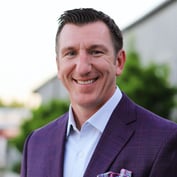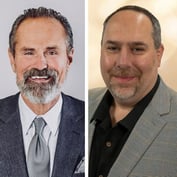All the world’s a stage,
And all the men and women merely players
In this oft-quoted soliloquy from his comedy “As You Like It,” Shakespeare shows the strength of metaphor. In 2010, the phrase “Wall Street” has become the operative metaphor for avarice and greed, and therein lies a challenge–and an opportunity–for advisors. As the leader of a coaching organization that works with hundreds of advisors, large and small, captive and independent, I have had an interesting vantage point during and after the Great Meltdown of 2008-2009. In speaking to our coaches and advisor clients, two themes have continued to come up again and again.
o First, trust has never been a more salient feature within the advisor-client relationship. What has been so striking is that this notion of trust has completely transcended the interpersonal dynamic between advisor and client, and extended to the feelings that clients have about the institutions themselves.
o Second, the need for meaningful engagement between advisor and client has never been greater.
These two statements are based not solely on whatever insight I might have from my own years of sales, advisory, and coaching experience, but on the hard data we gather in every coaching session with every advisor. In this monthly column, supplemented by live online events throughout the year, I will share with you what that data shows, and deliver to you actionable steps you can take to emulate the successes–and avoid the missteps–of real-life advisor clients whom you will meet in these pages and online.
To explore these issues, let’s start with the salient findings of some third-party research. A group of 650 individual investors surveyed recently by Lightspeed Research was asked to list words that came to mind to describe financial institutions. Of those surveyed, 32% called such institutions “greedy” and “impersonal,” while 26% selected “opportunistic,” and 22% reported they felt that financial institutions were “distant from me.”
In contrast, just 3% settled on the words “sympathetic” or “transparent,” 5% said “ethical,” and 10% described financial institutions as “honest.” Tellingly, 66% of respondents said they didn’t believe that the financial services industry will help them regain the wealth they lost in the recent economic downturn.
Harris Interactive polled 2,276 adults in December 2009 and asked, “How much do you blame each of the following groups for your personal financial situation?” The answers: 72% cited Congress; 71% blamed Wall Street; 63% said “large corporations;” and 39% blamed themselves. Nothing like investors taking ownership of their own role, is there?
You’ve Been Framed!
Have you ever been described by someone you don’t know well or at all, and the picture they paint is little more than a caricature? Sadly, this happens to financial advisors all of the time. You know the scene. You’re at a social function and you’re asked what you do for a living. You respond with a stock description that includes “financial” and “advisor” in the same sentence, and your listeners react by asking, “What do you like?” Or even worse, they quickly drop their interest in your career choice and start searching desperately for the hors d’oeuvres.
Last year didn’t help. Bernie Madoff rips off his friends and charities to the tune of multiple billions. “Sir” Alan Stanford attempts to buy off an island nation (after buying himself a title) while selling phony certificates of deposit. Dozens of other Charles Ponzi wannabes crawled, like insects, out of the woodwork. The Wall Street investment banks allowed themselves to be commandeered by a culture of greed merchants who did their best to take down the U.S. economy.
The net result is that you’ve been framed. Whether you like it or not, millions of investors have imbibed more than a year’s worth of bad headlines, and in their hangover state have crayoned financial advisors into a cartoonish image.
Building High-Trust Partnerships
For advisors, this is all a toxic brew. Not only do many clients view financial institutions and “Wall Street” as greedy and impersonal, but they also see those ill-defined establishments as being culpable for their own personal financial failings. The good news, if there is any, is that this indictment is directed toward institutions as amorphous entities as opposed to advisors personally. However, for the advisory community, this hardly constitutes cause for celebration.
So is there anything that individual advisors can do to counteract this widespread feeling that financial institutions are the villains, and not to be trusted?
From our experience coaching advisors, the answer is an unequivocal yes.








 March 01, 2010 at 02:00 AM
March 01, 2010 at 02:00 AM










